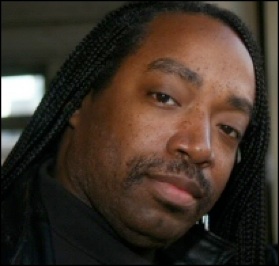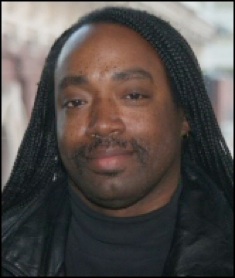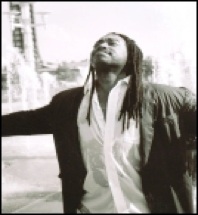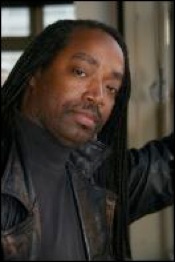I first encountered Wendel Werner’s music when he asked me to review his debut solo piano CD, “Loss,” in 2005. To say I was blown away is putting it mildly! A blend of jazz, blues, R&B, gospel, and soulful ballads, that CD was on my favorite albums list for the year, and I was thrilled when his follow-up, “One Sitting,” was every bit as good (“One Sitting” was on my favorites list for 2006). Wendel also released a Christmas album the end of 2006 (which I haven’t heard), and just released “Spiritual” on May 20, 2007. A musician who handles an unusually wide-range of musical genres effortlessly, he also teaches at the college level, conducts choral groups, directs and composes for musical theater, and just about anything else musical you can think of. Wendel shared some of his life story as well as thoughts and ideas about music in this interview in May 2007.
KP: When and where were you born?
WW: I was born in August of 1963 in Little Rock, Arkansas. My family was in the Air Force, which means we grew up in the car!!
KP: How many brothers and sisters do you have?
WW: I have two brothers and one sister. My brothers, Erik and Dereck, were born on my second birthday so we ALL have the same birthday, August 30th. My sister, Wanda, came two years after them.
KP: Are any of them musicians?
WW: Erik lives in Nashville, and is in charge of promotions for the three Fox affiliates in the area. At night, he is one of the top local call piano players. He’s in a blues-based R&B band, The Bomb Squad, that plays regularly. Dereck lives in New Orleans and is in the Navy. His job is playing the bass! He is in charge of one of the traveling rock bands, doing their arrangements, and playing with them. My sister lives in South Carolina and runs the dance program at Coker College. So, we all have jobs in the arts, and NONE of us thinks it's glamorous!
KP: What were your parents’ occupations?
WW: My mother was a registered nurse and is now retired. I like to think my siblings and I got our common sense from her. My dad passed away in 1996. He was a meteorologist. While in the Air Force, he briefed pilots on the weather they'd be flying into. After leaving the military, he started working for the National Hurricane Center, and our family lived in Miami, Florida. As a result, my siblings and I know more about weather than any of us wants to admit.
Dad was a HUGE music lover. He had albums - yes, ALBUMS - all over the house, and showed us how to handle and care for them. We grew up listening to Miles Davis, Beethoven, Sam Cooke, and The Beatles. We thought all families listened to this much music.
KP: No wonder you are so well-versed in such a variety of styles! How old were you when you started piano lessons, and how long did you take lessons?
WW: I was eleven when I started playing and taking lessons. I continued formal lessons up through my Masters Degree, so that's about 23 years. And you know what? I miss having a structured lesson. I like learning and am pretty self-motivated now, but I DO miss having lessons .
KP: Were you encouraged to improvise or compose by your piano teachers?
WW: My first few teachers didn't encourage it at all. The first one distinctly told me that I shouldn't be playing any Beatles songs because she thought they were all silly. "Yellow Submarine" was her sole example. As she was talking, I started picking out “Here, There, and Everywhere” on the piano. She stopped in mid-sentence and said, "That's really pretty. What are you playing?" I answered, "The Beatles.”
My second teacher was strictly for classical lessons so there was never any discussion about improvisation from either of us. It simply wasn't why we were there.
I started playing off the page on my own. I wanted to play some of the songs on Elton John’s first "greatest hits" album, but was disappointed that the sheet music wasn’t REALLY what Elton was playing on the record. So I started paying more attention to the recordings and tried to pick up the stuff on my own.
It wasn't until my jazz band teacher in high school that I had a teacher who encouraged coming up with things on your own. He was probably my fifth music teacher by this point. Ron Richards - a major influence on my musical life. With him, it became clear to me that there are times when it's important to play what is on the page and times when it's better to play off the page. When I switched my major in college from classical to jazz piano, I certainly had people encouraging me to improvise!
KP: How old were you when you wrote your first song?
WW: 11 or 12. Once I could play well enough to start understanding chords and seeing what others had done with them, I started coming up with my own ideas. My first song was something about a girl I took to the fair - not very good.
KP: Did you play with any rock bands in school?
WW: Oh man - how MANY bands did I play in? That's the real question. I played in a band in high school and then worked my way through college playing in all kinds of bands: blues bands, country bands, jazz bands, and NUMEROUS rock bands. Initially they were oldies bands. I still occasionally play in a rock band, but the older I get, the less I want to do that unless the circumstances are correct. I'll even do it for less money if I'm playing with people who are fun to play with AND play well.
KP: At what point in your life did you know or decide that you were going to be a professional musician? Did your parents or family resist or object?
WW: Interesting question. I was a senior in high school and I was on the baseball team, but I wasn't a starter. There was a game where the starting second baseman wasn't going to be able to play, so I was going to be able to take his place. That day, I was also scheduled to participate in the All-State Choir here in Tennessee, so a choice had to be made - and I didn't hesitate in making it. I went to choir and remember thinking, "I guess I've made my decision about the rest of my life."
I don't think my parents resisted anything my brothers or sister wanted to do. There may have been some strong suggestions, but no resisting. I think a life in the arts made my mother a little nervous at first. She suggested to all of us that having a degree in something else might make our lives a little easier. Some of us listened, some didn't. I was one who didn't. She was right - it probably would have made my life a little easier, but I would have been miserable. I never seriously questioned whether or not I made the right choice. I think she agrees now, but along the way, I certainly gave her reason to have concern.
KP: Did you play in school orchestras or bands?
WW: I played in a school jazz band during my junior and senior years at Whitehaven High School in Memphis, Tennessee. Prior to that, I was involved the choral programs at the junior high and high school I attended. The first year I was in jazz band, I played the bass since there was already a great piano player named Carl Bradley. Moving to bass was fine with me because that was Paul McCartney's instrument. We attended a jazz band festival in Knoxville that year, but we didn't win anything and were very disappointed.
We went back to the festival my senior year and I played piano. What was cool was that my brothers had joined the band that year. I played piano, Erik was on vibraphone, and Dereck played bass. That was an exciting year! We won first place in our division and walked away with four best soloist awards as well as a best rhythm section award. That was in the spring of 1981, and even now, the biggest trophy in the trophy room of our high school came from us.
KP: Besides piano, which instruments do you play?
WW: I can play a little bass, a little guitar, VERY little on the drums. I would never do any of that in public. The important thing is that knowing how to play these instruments is helpful because when I’m working with other musicians, I can speak in THEIR language. They appreciate that! At various periods of my life, I've had subscriptions to bass magazines, opera magazines, Modern Drummer, Guitar Player. I think it helps in being a better musician - you can't have enough knowledge.
KP: How old were you when you started improvising?
WW: If I started playing piano when I was 11, then I'd say sometime when I was 12. I was always interested in theory and why certain chords gave you certain feelings. I’d take my songs in my "Teaching Little Fingers To Play" book and put chords to them, or change a song from a major key to a minor key. It wasn't a case of trying to show off or prove anything; it was simply me thinking, "What happens if i do THIS?" I found it fascinating!
KP: When did you start playing professionally?
WW: It depends on one's definition of the word "professionally." If you mean being paid for playing, I had my first paying gig late in high school, playing for a wedding. If you mean as a vocation, then it leads to a story. I was playing in a rock band in college, and my manager and I were scouting out a place where the band was scheduled to play. I made some comment about what I was and was not going to accept from the people hiring me, all based on the fact that I was a “professional musician.” My manager looked at me and said, "You're far from being a pro, young man." I remember being FURIOUS at that comment, but I can honestly look back and see that he was right. As a result, I have a hard time thinking of myself as a "professional" musician. In my eyes, I'm still trying to get there. Sure, I've learned a lot of things on the way to where I am now, but it doesn't mean AT ALL that I still don't have far to go.
KP: Who or what are your biggest musical influences?
WW: This could be a long answer. In terms of appreciation for music, that would be my dad. He taught us things like what to look for in a good jazz album, what made the melody good in a pop song, and how to listen for contrary motion in voices. That was just a typical night with Father, and we didn't know other households weren't like this.
In terms of musicians out there today who have influenced me, they almost all are people who play more than one genre of music or people who have crossed over. I also like people who aren't afraid to use other styles of music in their own pieces. More importantly, I'm VERY influenced by people who broke traditions after being told, "You can't do that." That includes Duke Ellington, Miles Davis, Beethoven, Billy Joel, Wynton Marsalis, Harry Connick, Jr., and of course, Stevie Wonder. The Beatles have to be in there, too, and, above all else, Sammy Davis, Jr.
KP: What inspired you to start composing your own music?
WW: It was a combination of The Beatles and Elton John. When I started to learn how to play Beatles songs, there was this great satisfaction that came with playing a song by someone I worshipped. It was a challenge to see if I could use some of those chord progressions and come up with something as fun to play. Then came the music of Elton John, and, more importantly, the words of Bernie Taupin. I was blown away with his imagery. I would purchase an album of Elton's and, before I played it, I'd look at the lyrics and see if I could write music to them. When I was done, I had music for a song that no one was using, so I also wrote some words.
KP: Fascinating! I’ve never heard of anyone doing that! What has been your most exciting musical moment or experience so far?
WW: It's hard to pick just one. I played in a band that headlined the closing ceremonies of the Tennessee Special Olympics in the early ‘90’s. Playing to a full house in Nashville's Vanderbilt Stadium was very exciting. Tennessee’s Oak Ridge Symphony commissioned me to compose something for them around 2000. To see and hear that come to fruition was very gratifying as well. A year ago, I closed an outdoor concert series in Kennebunkport, Maine. Again, a lot of people, all very supportive. There have been loads of gigs with family and friends that have been very memorable, but, hands down, if there is one that has been the most FUN, then it would be a gig I did a year ago with a really good friend of mine named Leslie Graves. She's a well known and highly respected musician in the East Tennessee area. We came up with the idea of doing a performance that was made up entirely of duets. We went through a long list of ideas and ended up doing everything from "You Don't Bring Me Flowers" to "Love Is Strange" to "Ain't Nothing Like The Real Thing" and "You're The One That I Want." It was a blast and that says a lot - I try to make them ALL fun.
KP: Are there any specific pieces that you feel say the most about who you are as a person?
WW: I think they ALL say EVERYTHING about me. My friends would tell you that I don't talk about myself much, but I feel that if you watch me play, then everything is transparent.
I think there are pieces on my upcoming “Spiritual” album that say a lot about where I am in my life right now. For me, that's what my recordings are - documents of where I am in my growth musically. That probably sounds corny, but for me, that's what they are. That makes all the music aural representations of me as a person.
KP: Is there a particular philosophy that you try to convey in your music?
WW: Honestly, I don't think there is a specific philosophy I try to go by. I think I'm still learning how to do what I do. The more I learn, the less I know. Other musicians have said this and I always thought it was a little stupid, but now I understand the saying. I just try to be true to the music. That's the best I can do.
KP: Who are your favorite composers?
WW: If it's classical, then it's Beethoven first and foremost - especially the stuff AFTER he started losing his hearing. What an inspiration!!
If it's jazz, then we're talking Duke Ellington, Chick Corea, and I'm often fascinated with what Wynton Marsalis is doing. Harry Connick, Jr. too.
If it's country, I tend to go back to the original Hank Williams, and it's hard to overlook Willie Nelson. I think the best versions of his songs are done in a different genre. That says a LOT for the songwriter.
Pop music? The Beatles TAUGHT me how to compose. After that, it's a list that OUGHT to be everyone's list: Paul Simon, Stevie Wonder, Bob Dylan, Billy Joel, Elton John/Bernie Taupin. That's nothing but a list of well-constructed songs.
KP: Who are your favorite performers?
WW: James Brown: His death was a big loss for me. I saw him in concert three times, and the performing NEVER stopped from the time he came onstage until he was off. There was no down time - just nonstop energy.
Bruce Springsteen: When I saw him in concert, he had SOME level of the house lights on the entire time. He wanted the audience to see him having a good time, but he also wanted to see the audience having a good time, making it more of a joint celebration. As a result, I try to give my performances the same vibe. We're all in this together.
Prince: Just an amazing showman. I followed him around for three concerts during his last tour because I found out he was doing different material in each concert. Every night is different and every city gets their own concert, another trait I have tried to incorporate. I don't EVER do the same line up of songs - nor do I ever plan the order of songs. I'm learning about the performance at the same time that the audience is.
KP: Do you have any hobbies?
WW: I don't know that they are really hobbies, but I'm a huge baseball fan. My team is The Marlins, so I try to keep up with the game during the season. I'm a big comic book fan as well, but it became a costly hobby so I don't keep up as much as I would like. I DO buy a LOT of recordings, though.
KP: What do you like to do in your free time, or do you have any?
WW: Normally you'll find me going to a movie. It gives me a couple of hours to worry about someone ELSE'S life. The majority of my life is in front of groups of people, so it's nice to be in the dark for a little bit. BUT, if it's during the season, I’ll try to be at a baseball game.
KP: If you could have any three wishes, what would they be?
WW: Hmmm - a harder question than one would think. I'm not the kind of person that spends time wishing for things. For the sake of answering the question, my wishes would all be about bringing back people who have left us. I'd like to talk to my father again. And I'd like to have Ray Charles and James Brown back. That's three.
KP: Do you have any words of advice for young people who are studying music now?
WW: Don't let anyone tell you there are things you CAN'T do. If you want it bad enough, you will do what it takes to accomplish what you want. It means being okay with being knocked down a few times. If you can't handle THAT, you need a new job. But if you can stand turning all setbacks into learning opportunities, you'll get there.
KP: Are you able to support yourself with music only?
WW: Yes, I am. I knew early on (around the age of 20) that I wasn't interested in having a job if music wasn't directly tied to it. In my thinking, ANY job having to do with music was a learning experience that would help somewhere down the line, so it was never wasted time. I'm on the music faculty for a couple of colleges. I'm often commissioned to compose and arrange music. I play a lot of gigs. I do an average of two recordings a year. It's all music. I'm really lucky - no two days are the same, AND I'm in a profession that I love - most of the time.
KP: What’s up next for you?
WW: My next album, “Spiritual,” will be released on Sunday, May 20th, and I’ll be doing a celebration concert that evening. I’ll be doing some touring in June, and will play at your place on the 16th. I know you'll hear some of the new music when I'm in town. I'm looking forward to seeing what works and what doesn't.
KP: I can’t wait to meet you and see and hear you play live! You’ll actually be the closing act for my “Live In Hercules” concerts and workshops. Then it will be “Live in Florence, Oregon.”
For more information about Wendel and hiw music, visit
his website and his
Artist Page here on MainlyPiano.com
Kathy Parsons
May 2007




